This article was medically reviewed by Shaune Wallace, OD. Dr. Wallace is an Optometrist in Nevada with over 14 years of optometry experience. He received his OD from the Southern California College of Optometry in 2006 and is a member of the American Optometric Association.
There are 9 references cited in this article, which can be found at the bottom of the page.
This article has been viewed 19,875 times.
Contact lenses have come a long way in the past couple of decades. If you think you couldn't wear contact lenses in the past, you may be able to now because of advancements in technology. However, you also need to decide if you're ready to wear contacts, which includes thinking about if you can commit to the care and upkeep required. You also need to determine the reasons you might want to switch and decide if you're a good candidate.
Steps
Considering the Conditions of Wearing Contacts
-
1Determine if you're responsible enough. You can wear contact lenses at any age, but you should be responsible enough to keep up with and care for your contacts. If you're a teen, for instance, think about how well you keep up with other parts of personal hygiene, such as showering, doing laundry, flossing, and brushing your teeth. Plus, you must be responsible enough not to lose them.[1]
-
2Decide if you want to take on the regimen. When you wear contact lenses, you must take them out to clean them regularly, usually every day. That involves washing your hands thoroughly, then washing and disinfecting the lens. It also means never cleaning them with regular water or, much worse, your spit.[2]Advertisement
-
3Determine if you can pay attention to warning signs. If you tend to ignore medical problems, contacts may not be for you. When wearing contacts, you may start having itching, redness, or irritation in your eyes. Once you notice these signs, you need to take out your lenses and have your eyes checked out. Otherwise, you could be in for some serious problems with your eyes.[3]
-
4Understand the risks. Contact lenses are very safe when used properly. The main risks come from wearing them longer than you're supposed to, not cleaning them properly, or not taking them out at night. These behaviors can lead to eye ulcers and infections.[4] If you follow the instructions of your optometrist, the risks are relatively low.[5]
- In rare cases, infections and ulcers can lead to blindness.
Considering Reasons to Wear Contacts
-
1Choose contact lenses if you're very nearsighted. People with high myopia often prefer contacts over glasses because glasses at high powers tend to be very thick and heavy. Contact lenses also give you better peripheral vision than glasses.[6]
-
2Wear contact lenses if you play sports. Contact lenses are often better to play sports in because glasses can get lost or broken while playing sports. Contact lenses are much more likely to stay in place, plus they make it easier to wear protective gear like helmets and goggles.[7]
-
3Choose contact lenses if you don't like the look of glasses. Whether you're a teen or adult, you may have decided that you just aren't a fan of the way glasses look on your face. If that's the case, contact lenses may be a good option for you, so you can go glasses-free most of the time.[8]
- Contact lenses can also change your eye color. If you want to enhance or change your eye color, you can get colored contacts.
-
4Wear contact lenses in cold weather. Contact lenses can be good in cold weather because they don't fog up like glasses do when you're going in and out of buildings. If you live in a cold climate, switching to contact lenses might be a good option for you.[9]
Determining Whether You're a Good Candidate
-
1Skip lenses if you have bad allergies. If you have bad seasonal and non-seasonal allergies, you may need to skip wearing contacts. Allergies can cause irritation in your eye, and contact lenses will only make that worse. If you often have red or itchy eyes due to allergies, you may not be a good candidate for contacts.[10]
-
2Avoid lenses if you work in a dusty environment. Dust, chemicals, and other irritants in the air can cause problems when wearing contacts. If you work in a place that has a significant amount of dust or chemicals in the air, such as a manufacturing plant, you may need to skip contact lenses.[11]
-
3Talk to your parents if you're a teen. If you're still underage, you should talk to your parents to help you decide if you're a good fit for contacts. They know you well enough to know your habits and whether or not you can keep up with the demands of contacts. Plus, they know any other conditions you may have that could cause problems.
- When talking to your parents, bring up why you want to do it: "Mom and Dad, can I talk to you? I'd like to discuss the possibility of wearing contacts. I think they would really be helpful when I'm playing soccer, as my glasses are constantly falling off."
-
4Don't wear contacts with certain medical conditions. Certain medical conditions make wearing contacts a bad idea. For instance, wearing contacts when you have diabetes causes an increased risk of dry eye disease, which makes wearing contact lenses more difficult. You may also not want to wear contacts if you have bad arthritis in your hands or if you have an overactive thyroid. Talk to your doctor if you're concerned.[12]
- Any condition that causes dry eyes may make it difficult to wear contacts.
Warnings
- It does take about a week to adjust to wearing contacts, so be patient.⧼thumbs_response⧽
References
- ↑ http://www.bausch.com/vision-and-age/teenager-eyes/vision-correction#.V-yI6SSgtQt
- ↑ http://www.fda.gov/ForConsumers/ConsumerUpdates/ucm318020.htm
- ↑ http://www.fda.gov/ForConsumers/ConsumerUpdates/ucm318020.htm
- ↑ http://www.fda.gov/MedicalDevices/ProductsandMedicalProcedures/HomeHealthandConsumer/ConsumerProducts/ContactLenses/ucm062589.htm
- ↑ http://www.allaboutvision.com/contact-lenses-teens/
- ↑ https://bc.doctorsofoptometry.ca/library/are-contact-lenses-right-for-me/
- ↑ http://www.allaboutvision.com/contact-lenses-teens/
- ↑ http://www.fda.gov/ForConsumers/ConsumerUpdates/ucm318020.htm
- ↑ https://bc.doctorsofoptometry.ca/library/are-contact-lenses-right-for-me/
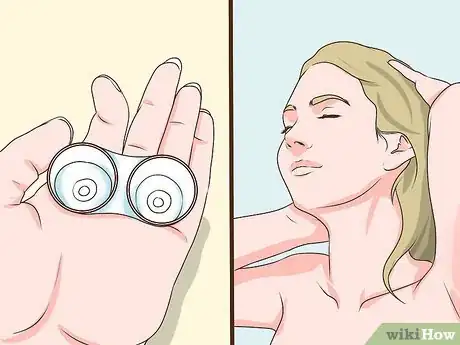
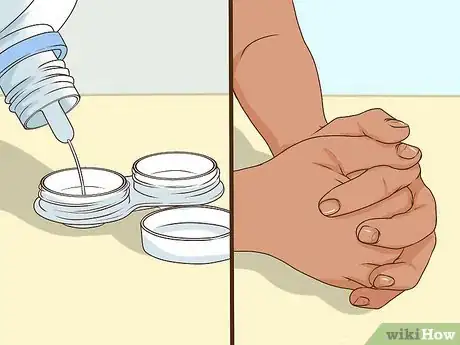
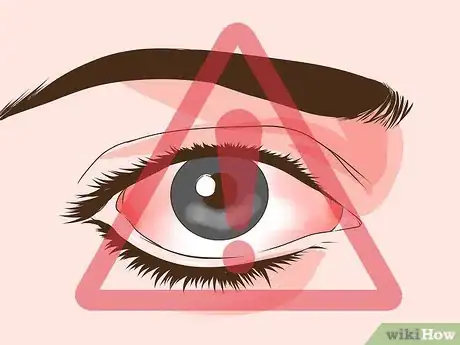
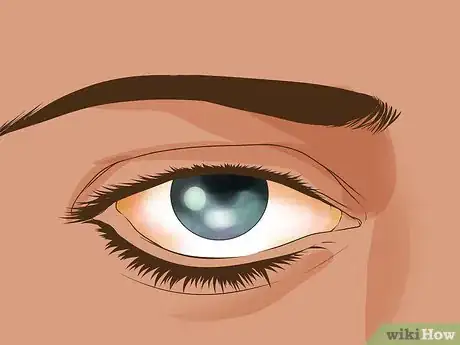
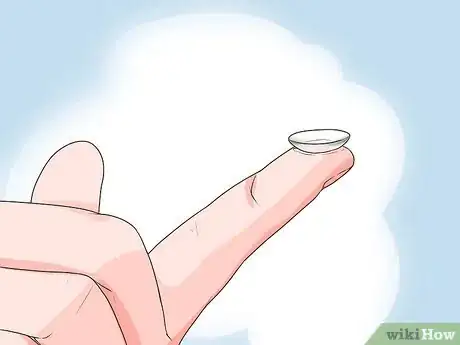
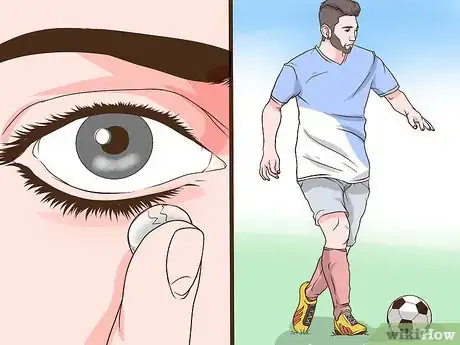
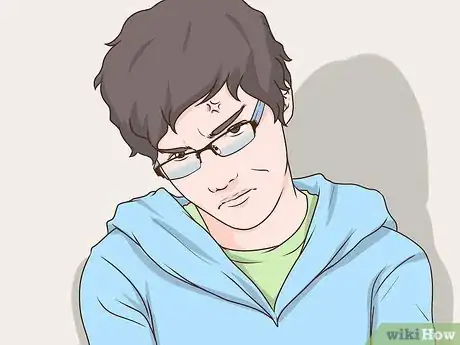
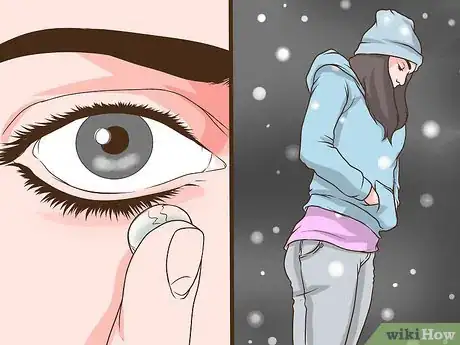
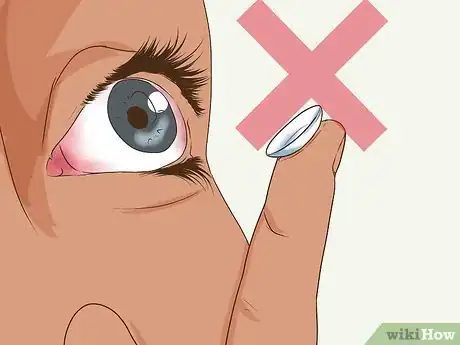
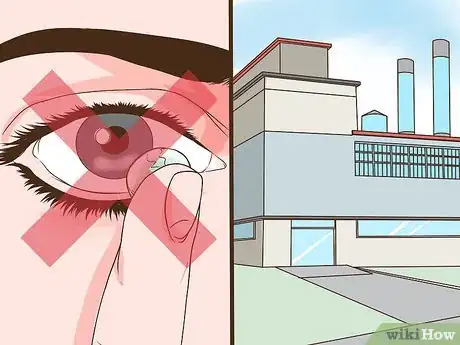
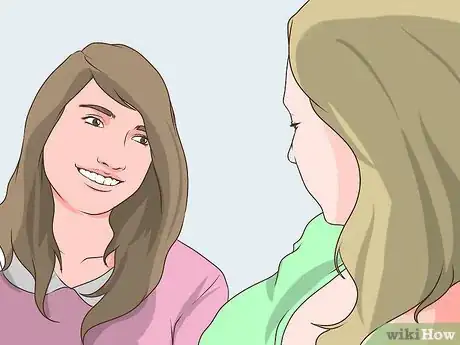
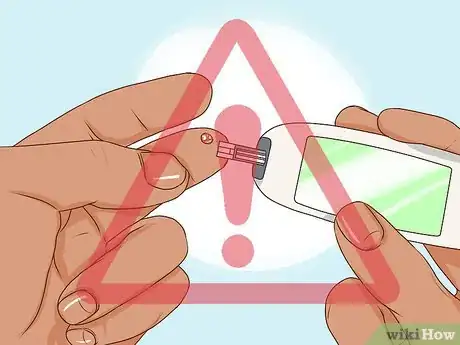
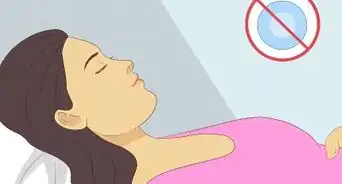
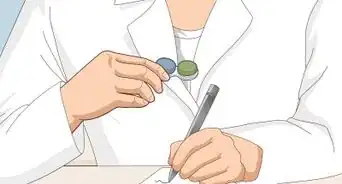


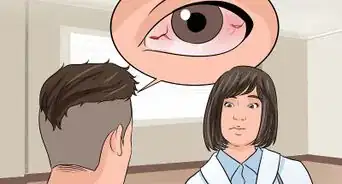
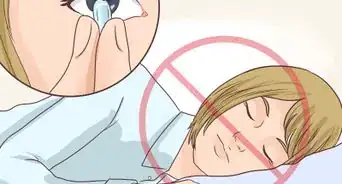
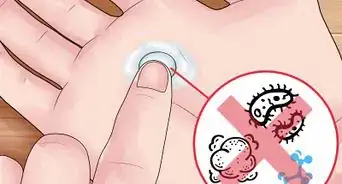
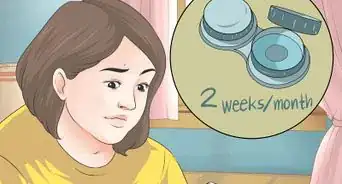
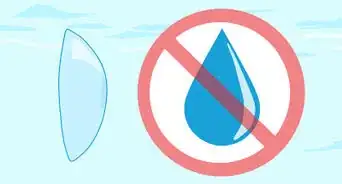
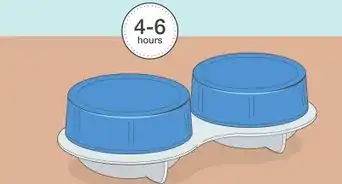











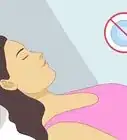
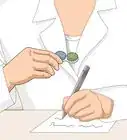





































Medical Disclaimer
The content of this article is not intended to be a substitute for professional medical advice, examination, diagnosis, or treatment. You should always contact your doctor or other qualified healthcare professional before starting, changing, or stopping any kind of health treatment.
Read More...